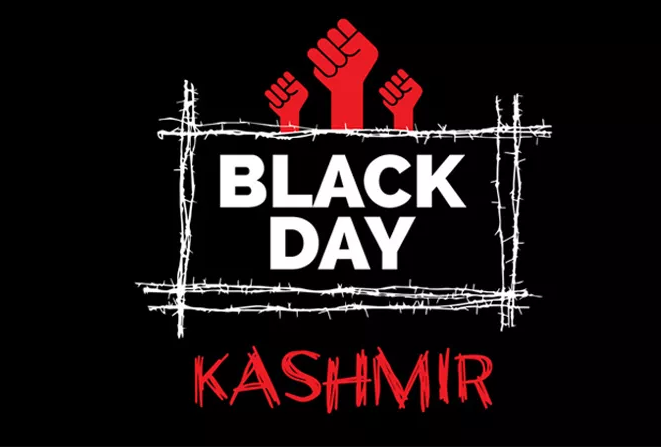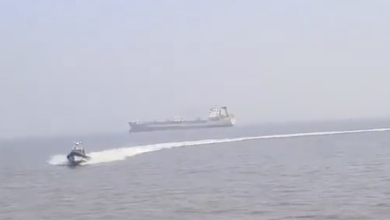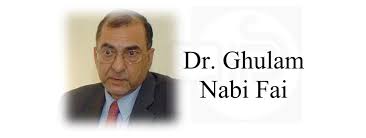
 “If you are neutral in situation of injustice, you have chosen the side of oppressor” well said by the Archbishop Desmond.
“If you are neutral in situation of injustice, you have chosen the side of oppressor” well said by the Archbishop Desmond.
No, here we are not talking about Gaza war, we are discussing about Kashmir conflict. The huge issue which is somewhere lost during these days due to current ongoing war between Gaza and Israel. The beautiful area of Kashmir is under the oppression and ill politics of India since 1947. Lets back to the past & put some light on what happened with the Kashmir and Kashmiris and highlight the scars of history from which the people of Kashmir are still suffering.
October 27, known as Black Day, marks the beginning of a struggle that has haunted Kashmir for over seven decades. It commemorates the day in 1947 when Indian forces entered Jammu and Kashmir under the controversial Instrument of Accession, which was signed without the consent of Kashmir’s majority Muslim population. India failed to fulfill UN Resolution 47 (1948), calling for a plebiscite to determine Kashmir’s future, Ignoring the right of Self-Determination and Breach of Instrument of Accession. Later on India also violate the constitutional right of Kashmir on 5 August 2019 by abrogation of Article 370 unilaterally altered Kashmir’s constitutional status. This event set in motion a legacy of political betrayal, human rights abuses, and a prolonged conflict that continues to devastate lives in the region. The sorrow of this day is not confined to history; it resonates in the daily lives of Kashmiris who continue to demand their right to self-determination—a right promised but consistently denied.
The Jammu massacre, a lesser-known yet equally harrowing chapter from that time, unfolded in the months following Black Day. Thousands of Muslims were ruthlessly killed across the Jammu region, with reports estimating that between 20,000 and 100,000 were massacred, while countless others were forced to flee. Entire villages were wiped out, and families torn apart. The scale of this tragedy cannot be overstated, as it represented not just a horrific loss of life but a calculated attempt to alter the demographic and cultural landscape of Jammu and Kashmir.
This tragedy has political consequences as well as it has destructive social impacts on Kashmir. The impacts of this tragedy of 1947 on the Kashmiri people were not only short-term, like humanitarian crisis, social and economic consequences, political and civil rights and demographic changes but also it came with prolonged effects which the Kashmiris are even facing today. These Long-term Effects are ongoing conflict, militarization and curfews, economic stagnation and dependency, psychological scars and inter-generational traumas. Case study shows that Both the Muslims and Hindus of Kashmir were impacted by this tragedy of 1947.
Here’s a story of Gulzar Ahmed Dar, a Kashmiri Muslim, recounts his family’s experience during the 1947 Kashmir tragedy: “My family’s agricultural land was taken over by the Indian army. We lost our livelihood. Many Kashmiris face similar struggles. I grew up hearing stories of 1947 about How my grandfather’s sister was killed, how they fled with nothing. Those stories haunt me. In 1947, my grandfather’s village, Baramulla, was attacked by tribal militias. Our family fled to Srinagar, leaving behind our ancestral home and livelihood. The conflict destroyed our cultural heritage. Our traditional crafts, music, and dance were lost. Our language, Kashmiri, is now spoken by fewer people. The trauma of 1947 passes down generations. My children hear the stories, and it affects them. It’s a collective trauma.”
Like this there are number of painful stories of Kashmiris which not effected their lives and culture only, also the generations of Kashmiris are still suffering today. The Kashmir tragedy occurred in 1947. As of 2024, it has been 77 years since these years generations have passed, political landscapes have changed, conflicts have evolved. Yet, the Kashmir issue remains unresolved. Its time to recognize the new method to resolve the Kashmir issue. The initiatives should be considered by Civil Societies, firstly it could be community-led initiatives in which they support grassroots initiatives promoting inter-community dialogues. Second, it could be education and awareness in which they promote awareness about Kashmir’s history, culture, and conflict.
Black Day and the Jammu Massacre are a powerful reminder of the unaddressed humanitarian crisis in the region. They represent both the start of Kashmir’s unresolved conflict and the unfulfilled promises of justice and peace. Today, Kashmiris and supporters around the world call upon the international community to honor these lives lost and fulfill its responsibility to resolve this conflict.
-The writer holds a degree in International Relations from the University of Okara.








